Are you looking to enhance your skills or evaluate your current knowledge? Requesting a learning assessment can be a pivotal step in your educational journey, providing valuable insights into your strengths and areas for improvement. Whether you're aiming for professional development or personal growth, a well-structured letter will help you communicate your needs effectively. Join us as we explore how to craft the perfect request for a learning assessment that sets you on the path to success!
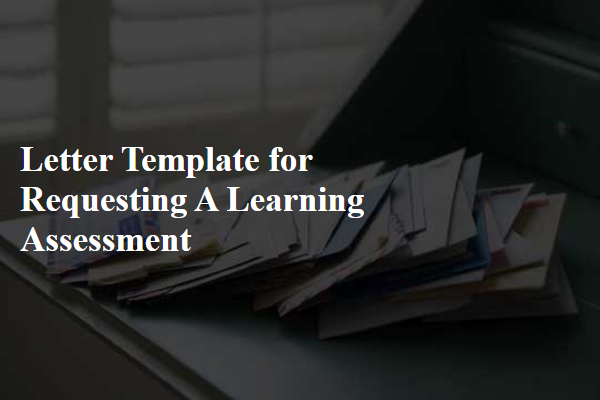
Personal information (name, contact details, child's details)
Requesting a learning assessment can provide valuable insights into a child's educational needs. A request may include key personal information such as the parent's name (e.g., John Smith), contact details (e.g., phone number: 555-123-4567, email address: johnsmith@email.com), and the child's details (e.g., child's name: Emily Smith, age: 8, grade level: 3). Additionally, including the child's school name (e.g., Lincoln Elementary School) can help the assessment team coordinate with educators. Such assessments often lead to tailored learning strategies, supporting children with diverse learning styles.
Reason for request (specific concerns, observed issues)
Parents often notice specific concerns about their child's learning progress within educational settings. For instance, a child showing difficulty with reading comprehension could struggle to grasp key concepts from texts, affecting overall academic performance. Observed issues may include frequent frustration during homework sessions, reluctance to participate in classroom discussions, or consistently low grades in language arts subjects. In some cases, a noticeable gap in math skills could manifest through challenges in solving basic arithmetic problems or understanding fundamental concepts like addition and subtraction. Addressing these specific challenges through a learning assessment may help identify underlying learning disabilities or ADHD (Attention Deficit Hyperactivity Disorder) and provide tailored interventions to support their educational journey.
Description of child's academic performance and behaviors
A detailed request for a learning assessment emphasizes key aspects of a child's academic performance and behavioral patterns. This request should highlight specific academic metrics, such as grade point averages, standardized test scores, or completion rates for assignments. Observed behaviors, including attentiveness in class, participation during group activities, and interactions with peers, play a crucial role in understanding the child's learning environment. Additionally, any noticeable challenges, such as difficulties with reading comprehension or mathematics, should be documented. Relevant incidents, like frequent distractions or emotional outbursts, provide context for the child's educational needs. This comprehensive overview ensures that the assessment team has a clear understanding of both strengths and areas needing support within the child's learning journey.
Request for specific assessment type or professional
Requesting a learning assessment can significantly impact a student's educational journey. Specific assessments, such as cognitive evaluations or reading fluency tests, are essential for identifying learning styles and areas needing support. Engaging with professionals, such as educational psychologists or special education specialists, ensures an accurate and comprehensive evaluation process. The results guide tailored interventions and instructional strategies, ultimately enhancing the student's academic success and personal growth. Prompt action to secure this assessment can lead to beneficial outcomes for the student.
Contact information for response and follow-up
A learning assessment request should include essential contact information for streamlined communication. This information typically consists of the requester's full name, including any title or affiliation, email address for written correspondence, and a phone number for quick follow-up discussions. Additionally, specifying a preferred time frame (such as the best days and hours for callbacks) can enhance coordination. If relevant, including the address of the educational institution or organization involved can provide context. This structured approach ensures clarity and accessibility, promoting a responsive dialogue regarding the assessment process.
Letter Template For Requesting A Learning Assessment Samples
Letter template of notification for initiating a learning assessment process.
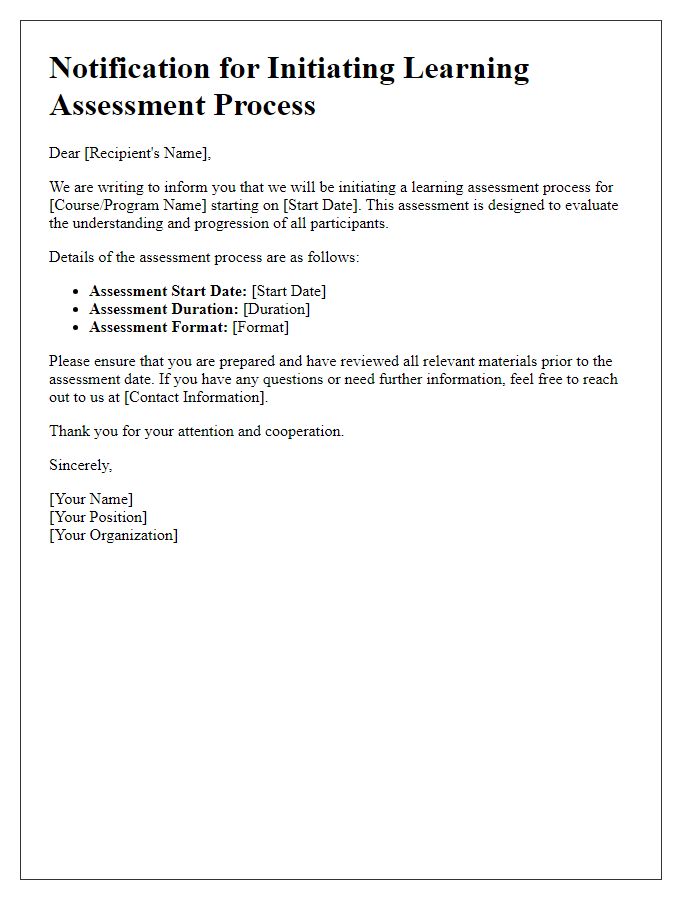
Letter template of solicitation for a formal learning assessment review.
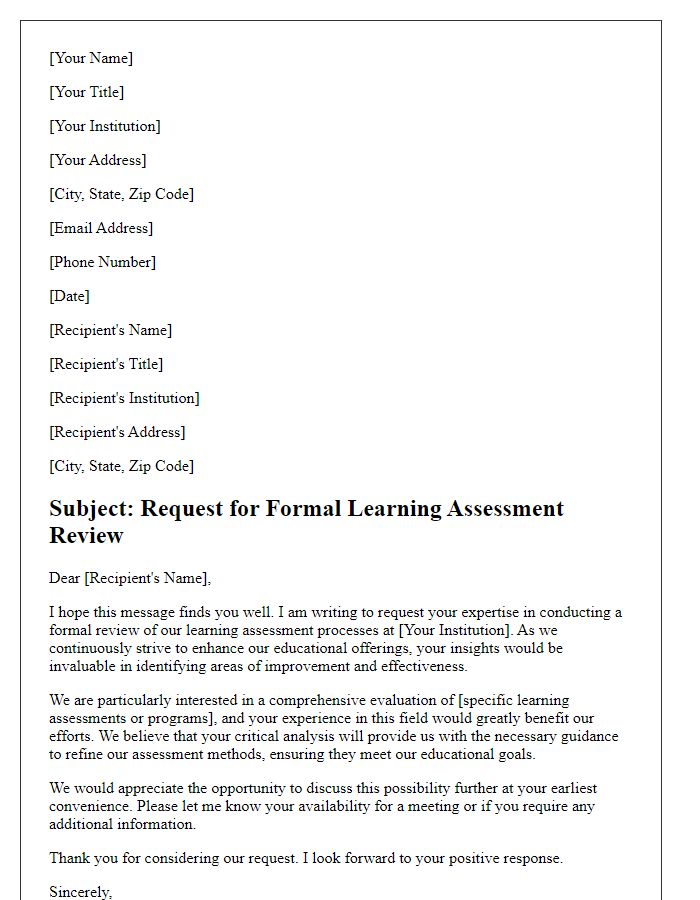
Letter template of proposal for scheduling a learning assessment meeting.
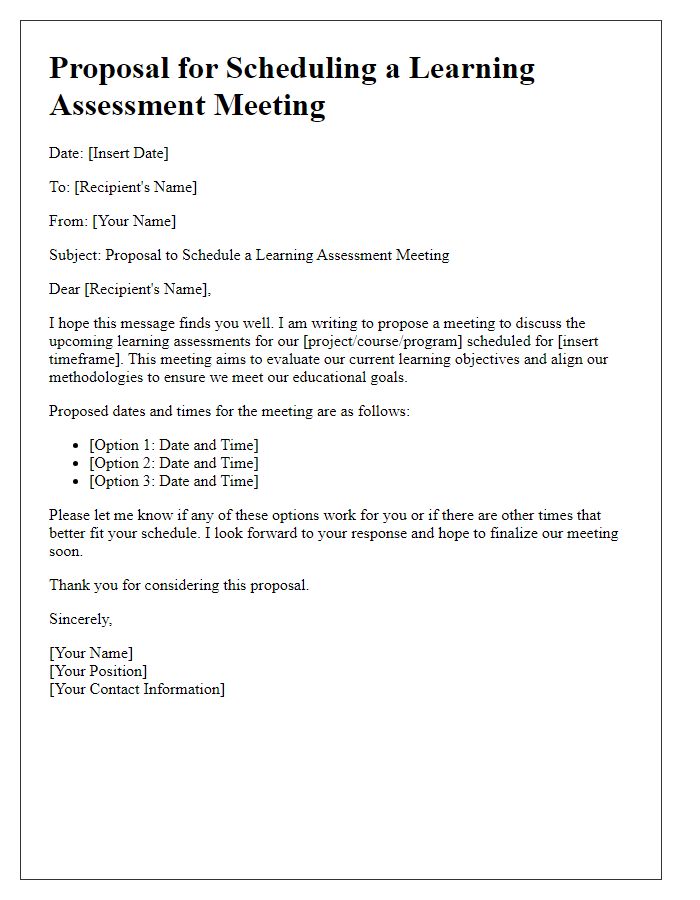

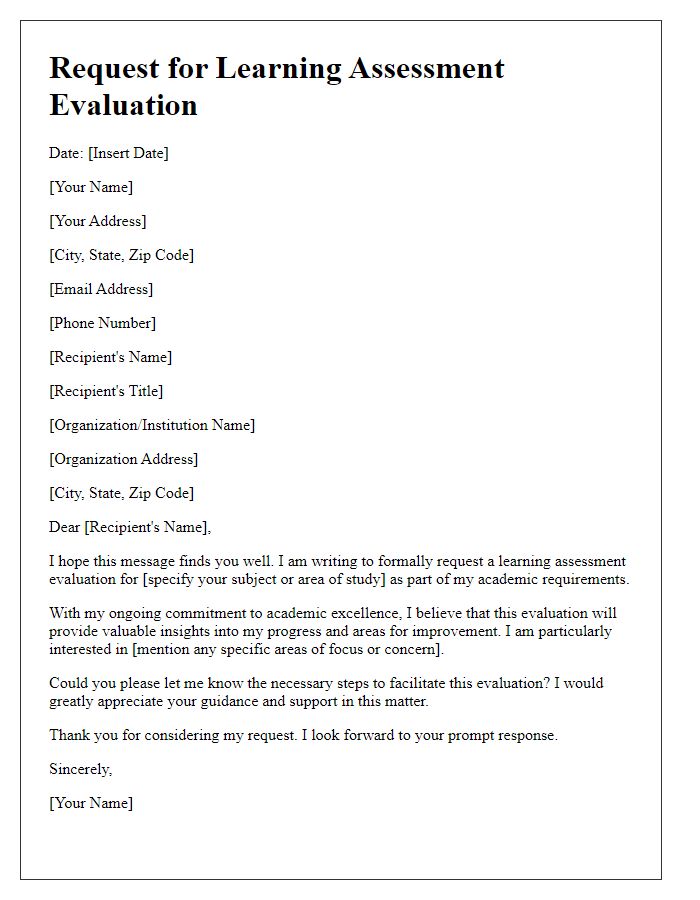
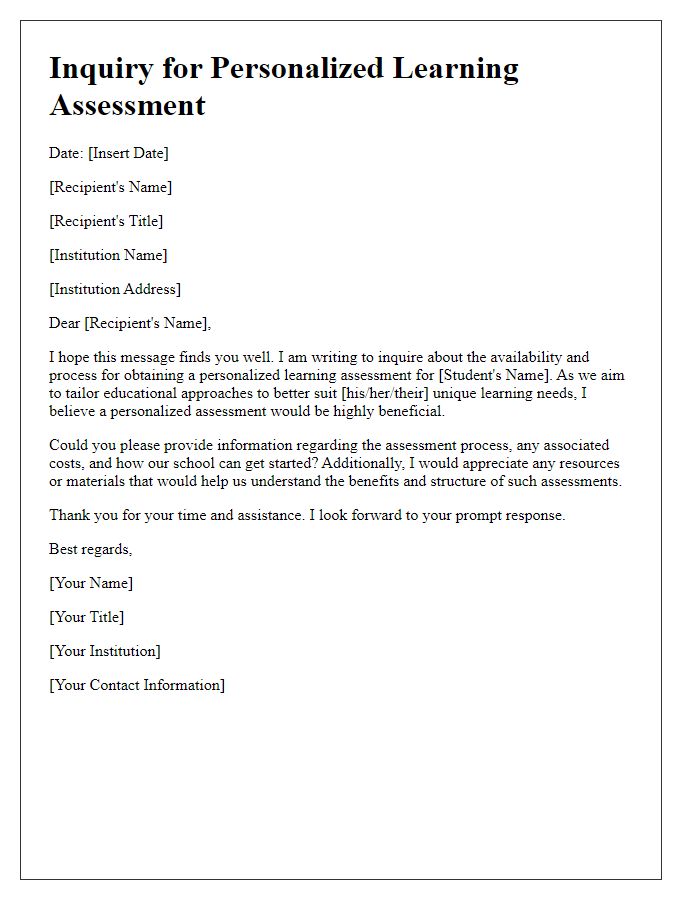
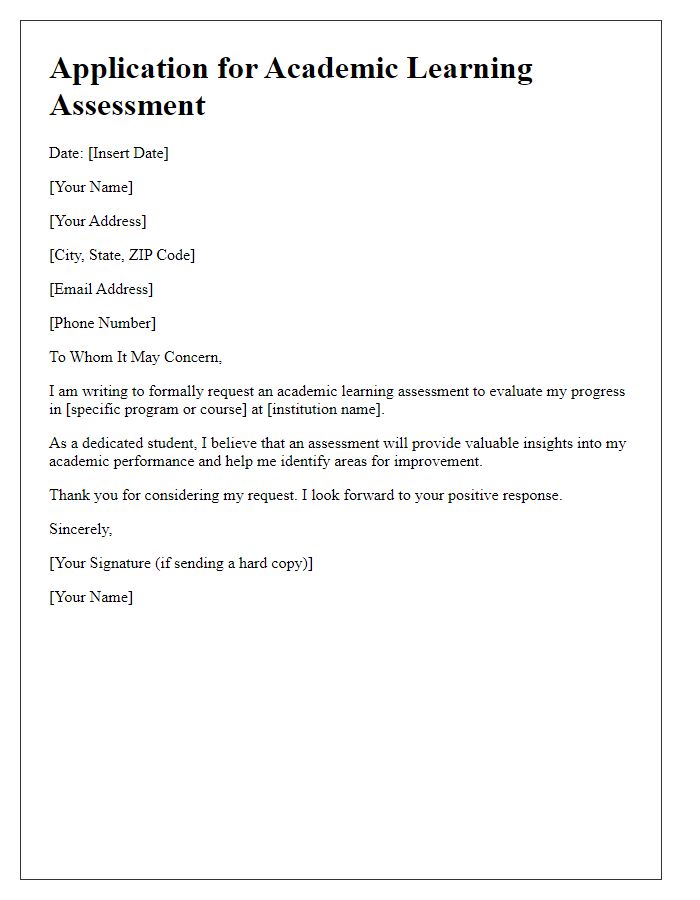
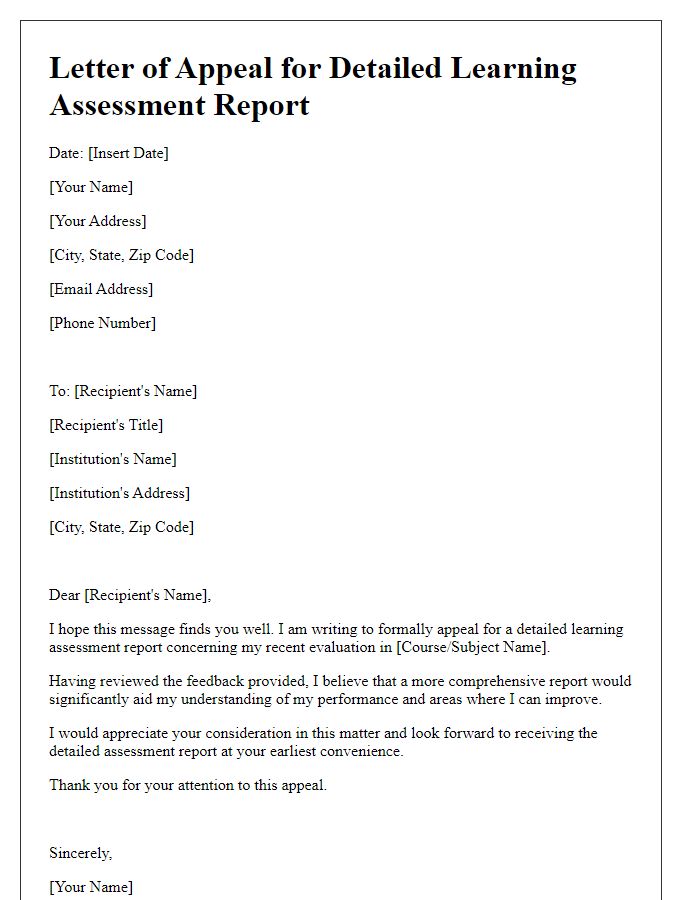
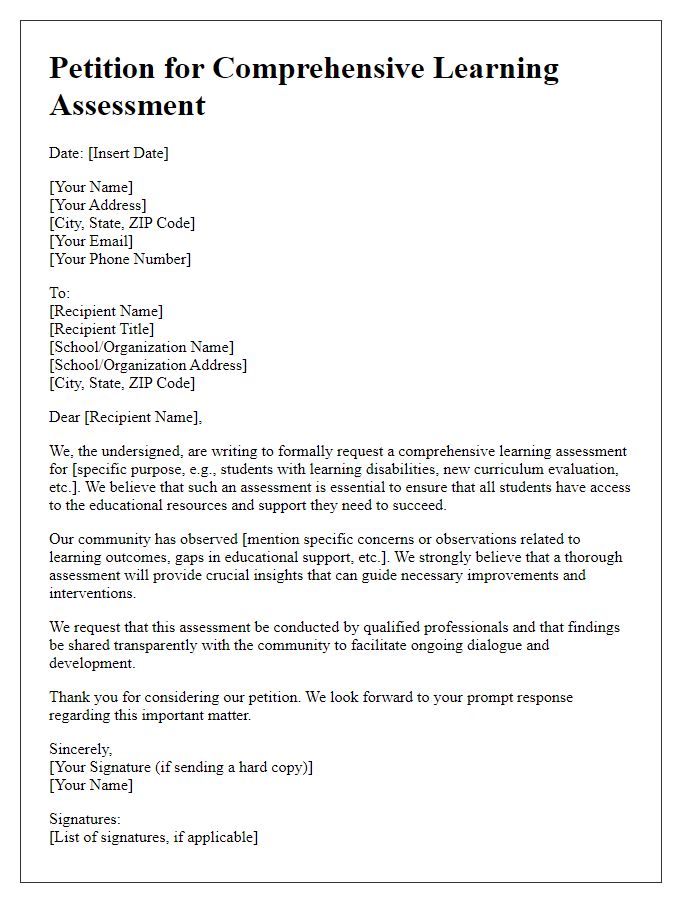
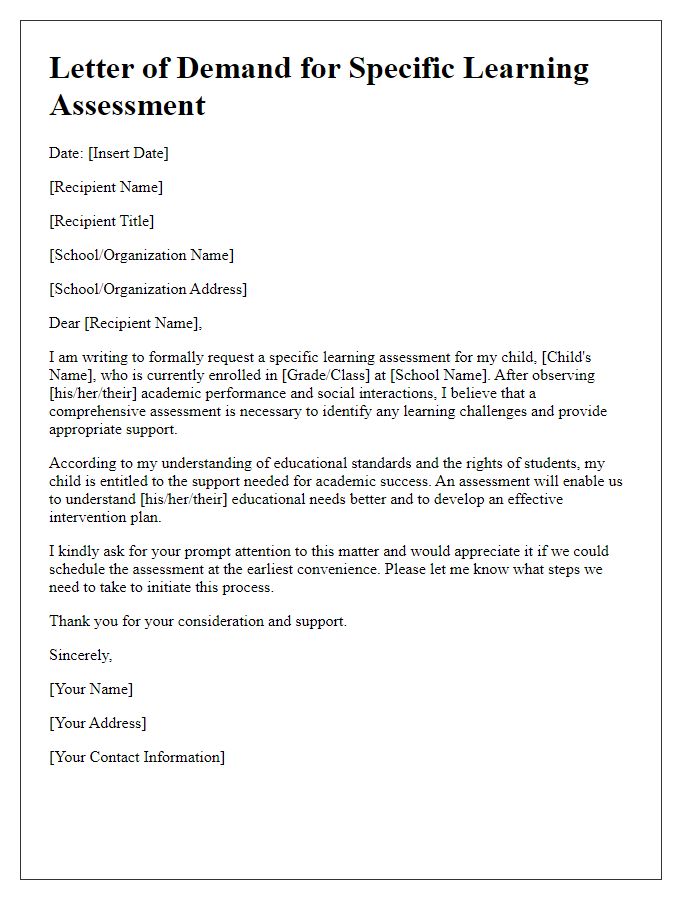
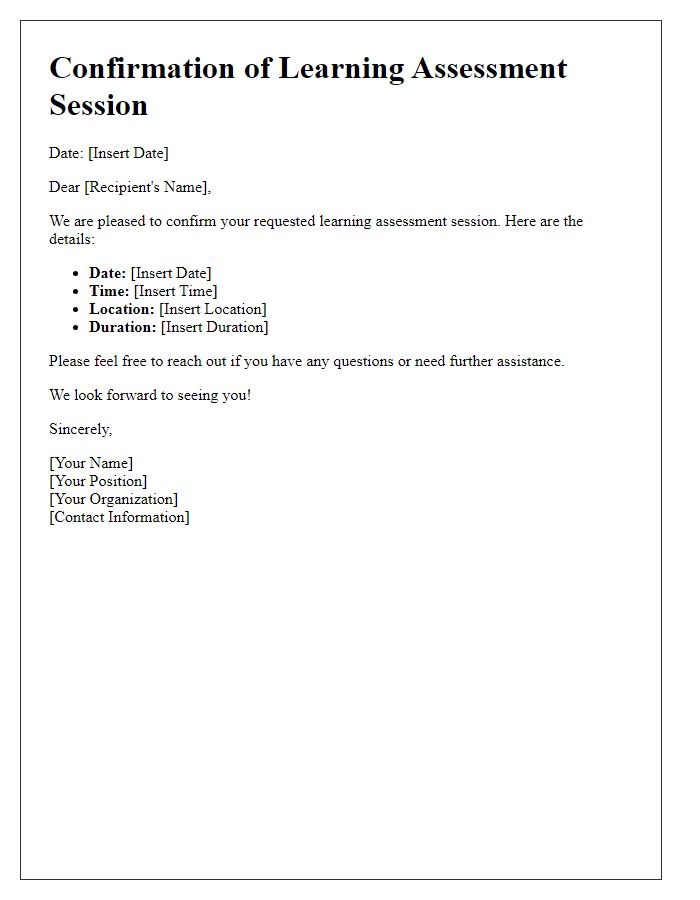


Comments